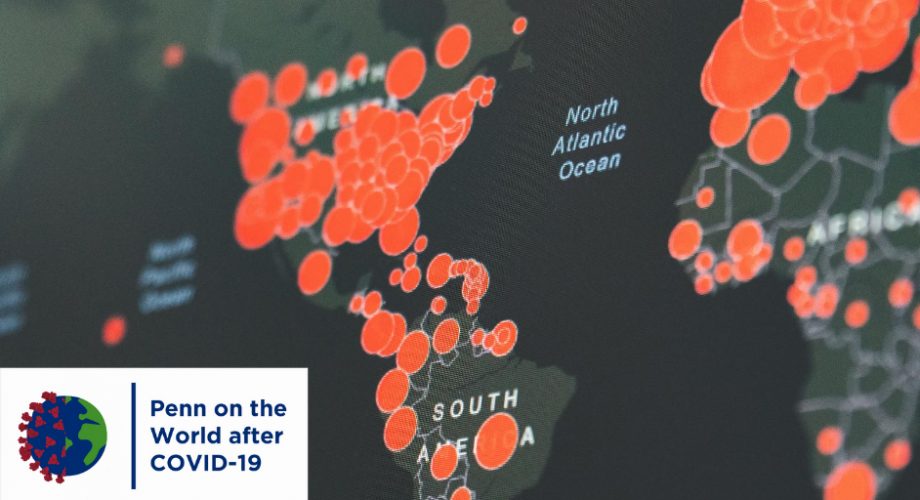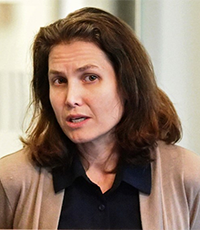News Details
Penn on the World after COVID-19

Authored by: Dr. Jennifer Prah Ruger
Faculty & Research
09/08/20
Penn on the World after COVID-19 is a joint project of Penn Global and Perry World House. In this series, Penn’s leading faculty, fellows, and scholars imagine what the global pandemic will leave in its wake.
Jennifer Prah Ruger is the Director of the Health Equity and Policy Lab (HEPL) and the Amartya Sen Professor of Health Equity, Economics and Policy at the School of Social Policy & Practice and the Perelman School of Medicine at the University of Pennsylvania. Below, she shares some of her insights:
COVID-19 has caused extensive death and injury as well as social and economic disorder. The International Labor Organization (ILO) Monitor states that COVID-19 is “the worst global crisis since the Second World War.”
The world has looked to the World Health Organization (WHO) as the leading global health governor for COVID-19. But today’s WHO is under fire, with some questioning its relevance altogether. Former WHO Director-General Margaret Chan expressed skepticism at WHO’s ability to govern global health, stating “[t]he level of WHO engagement should not be governed by the size of a health problem … Others may be positioned to do a better job.”
In the 19th and 20th centuries, international health governance (IHG) focused on cooperation among nations to control the spread of communicable diseases—yellow fever, cholera and the plague—to protect trade and travel among powerful nations. But these older IHG structures have been ineffective in preventing and addressing challenges like COVID-19.
Thus, a more complex global heath governance (GHG) era began, in which new actors, programs, initiatives, and regimes proliferated and new funding exploded. The WHO World Health Assembly is just one process for global health decision-making. The WHA has been overshadowed by new mechanisms working bilaterally (like the U.S. President’s Emergency Fund for AIDS Relief, or PEPFAR), regionally (like the EU) and through alternative structures (like the Gates Foundation). Often these activities are uncoordinated and their effectiveness is debatable.
Global health problems have potential solutions in the behavior of global and national actors and institutions, but the current GHG system has too many intractable problems. It is fragmented and inefficient and suffers from blurred lines of responsibility, inadequate global standards, and undue influence from powerful countries and institutions.
Read the full piece here.
People
-

Jennifer J. Prah, PhD, MSL, MSc, MA
Amartya Sen Professor of Health Equity, Economics, and Policy
Contact
office: 215.746.1330
fax: 215.573.2099
Email